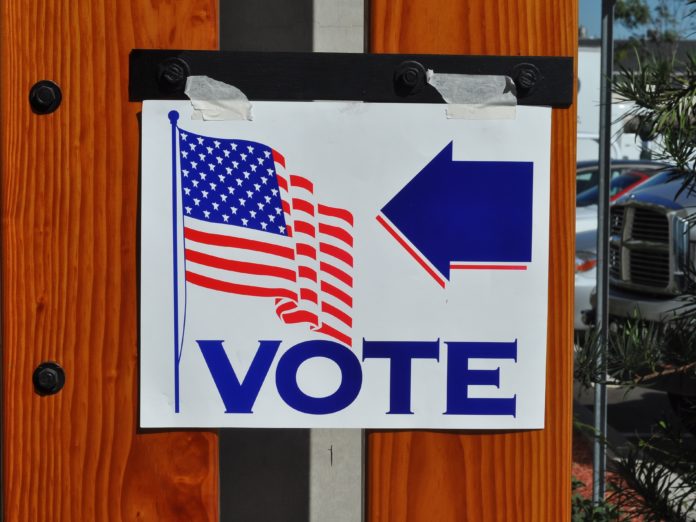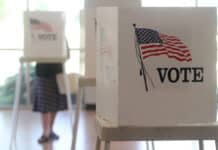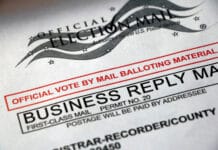Under Minnesota’s current voting system, there appears to be a huge loophole that allows ineligible ballots to be counted. Here’s how it works.
If someone registers to vote—even on election day—their ballot is cast as long as they provide either a driver’s license, a utility bill, or have someone vouch for their place of residence. This now-registered voter then has their information run through the system to determine eligibility after the fact.
This includes verifying citizenship, identity, felony status, and address. For example, a postcard is sent to the address they have given. If that postcard is returned to the authorities undeliverable, without a forwarding address, the voter’s eligibility is considered “challenged.” A second postcard is sent. If still undeliverable, the registered voter is now placed in the “inactive” bucket. Likewise—based on databases from sources including the Minnesota Department of Public Safety and Health and Human Services—if the voter’s social security number doesn’t match the name, if the voter is deceased, or if the voter is a felon, that voter is placed in the “challenged” bucket.
Here’s the catch. If this same would-be voter—in the case of undeliverable postcards—comes in to vote again they are notified of the reason for the challenge and asked questions pertaining to the challenge by the election judge. Often, they only have to “self-certifiy” that they are eligible to vote, and they will be allowed to vote and their name is dropped off the inactive or challenged list. In the case of undeliverable postcards, the person could “self-certify” and explain why they really live at this address. Here, it should be noted that much discretion is currently given to the election judge.
Yet if that same voter wants to skip the hassle of an election judge, the challenged voter can cast an absentee ballot where they avoid the whole process of dealing with an election judge altogether.
Again, these issues can be for an undeliverable postcard—which shows that the address given is not correct—or it can be due to lack of citizenship, or felony status.
How big of a deal is this?
Currently, as of the 2016 election, Minnesota had 26,000 already-registered voters with a challenged voter status, meaning that the voters had failed at least one of nine eligibility checks (again, including citizenship and felony status).
In 2018, the Office of Legislative Auditor (OLA) looked at a small sample size of persons who were able to cast votes but had a challenged voter-eligibility status. Specifically, looking at a sample of around 600 who had been flagged for a felony that made them ineligible to vote, less than 5% were potentially eligible, while over 400 of these 600 voters were very clearly ineligible.
The Howe bill
That’s why Senator Jeff Howe has launched SF 4523. Howe believes his bill is a way to compassionately deal with persons who’ve failed one of nine state eligibility checks, while also ensuring eligible voters are treated fairly and don’t have their votes diluted by ineligible voters.
First, the bill keeps voters listed as “challenged” instead of “inactive” after that second postcard comes back undeliverable and without a forwarding address. That keeps people from being able to simply “reactivate” their eligibility to vote by showing up to vote later on, or by sending in an absentee ballot.
Next, the bill requires that the state also check with the Social Security Administration, which among other things can help determine whether the voter is indeed a U.S. citizen:
“Within ten days after the county auditor has entered information from a voter
registration application into the statewide registration system, the secretary of state shall
compare the voter’s name, date of birth, and driver’s license number, state identification
number, or the last four digits of the Social Security number with the same information
contained in the Department of Public Safety database and the Social Security Administration
database.” (underlined text notes the addition to the existing language made by Howe’s bill).
Finally, Howe’s bill says that those who have their voter-eligibility status listed as “challenged” are allowed to cast provisional ballots. The bill takes away the ability of these individuals to “self-certify” that they are indeed eligible to vote—which again is only at the discretion of the election judge. A provisional ballot means that the ballot may or may not count, depending on whether the voter can later prove their eligibility. According to Howe’s bill:
“Before the applicant signs the roster or voter signature certificate, a
judge must confirm the applicant’s name, address, and date of birth. A voter whose registration status is listed as challenged or whose eligibility to vote is challenged as permitted by section 204C.12 may not sign the polling place roster, but may cast a provisional ballot as provided in section 204C.135. (underlined text notes the addition to the existing language made by Howe’s bill).
Then, SF 4523 outlines rules on provisional ballots. This includes allowing the challenged voter to provide evidence, such as proof of residence, that the voter is indeed eligible within seven days of the election if the provisional ballot is to be counted.
Trust but verify
To sum it all up, Sen. Jeff Howe’s bill simply says that people who the state has reason to believe are voting illegally can no longer self-certify. Instead, they can cast a provisional ballot and then prove that they are eligible to vote, by providing reasonable proof that the issue they have been challenged on (such as felon status) does not make them ineligible.
Proponents of the Howe bill note that 47 states have some form of provisional balloting, yet Minnesota Democrats don’t like the idea of provisional ballots.
Some opponents of Howe’s bill to require limited provisional ballots for those who have failed a verification test will claim that the bill puts a strain on lower-income Minnesotans, or is a voter-suppression measure. However, proponents of SF 4523 note the serious issues that lead to a voter’s status being challenged and note the extremely high number of illegal votes among the bucket of challenged voters examined by the OLA in 2018.
Minnesota Voter’s Alliance (MVA), a center-right election integrity organization, has attempted to examine the rest of the 26,000 voters who have failed a verification test, in order to determine if the rest of the 26,000 challenged voters are ineligible as well. But Secretary of State Steve Simon, a Democrat, has refused to release this data to MVA. Simon has claimed that this decision is due to his regard for personal privacy. But MVA responds that the state voter registration data is already public, what isn’t public is the list of those 26,000 who have failed an eligibility test within that broader list of registered voters.
It is not yet clear whether Senate Republican leadership will get behind Howe’s bill.

















